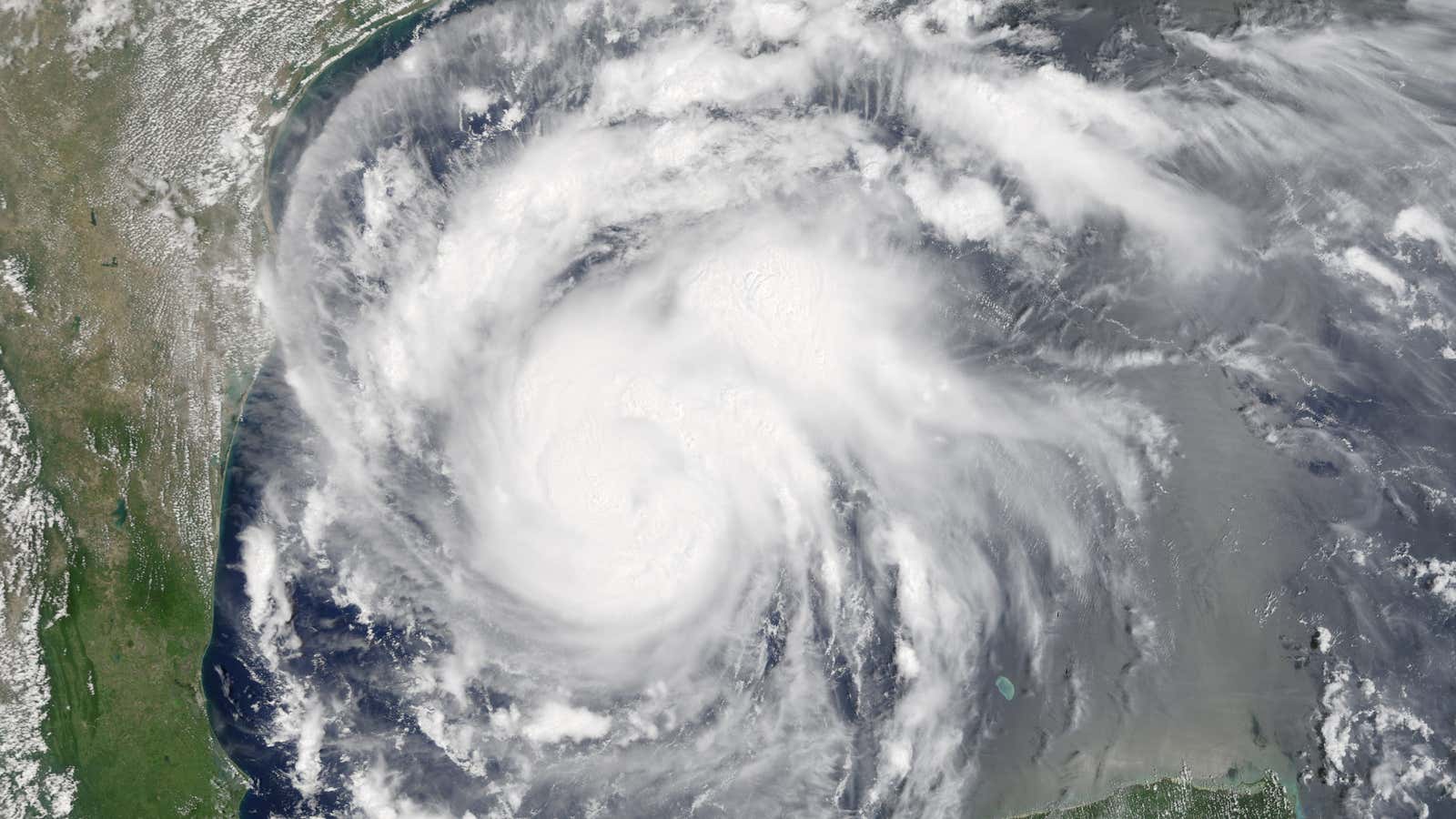Hurricane Harvey is gaining steam, and is set for landfall on the coast of Texas late tonight (Aug. 25). By then it is expected to have gained the power of a category 3 hurricane, which would destroy poorly constructed houses, severely damage apartment buildings and shopping centers, and leave large areas without water and electricity for days or even weeks.
But its effect on the energy industry is what many will be watching. The federally-controlled offshore waters of the Gulf of Mexico produce 17% of the US’s total crude oil output, while around half the US’s petroleum and natural gas refining capacity is situated along the gulf coast.
Houston, some 30 miles (48 km) inland, is home to the country’s largest refinery and petrochemical complex. As ProPublica and the Texas Tribune reported last year, a direct hit from a big storm would cause enormous damage, not just economic but also environmental, since the complex stores huge quantities of dangerous chemicals.
As well as taking out the oil and gas industry, such a storm could wreck the Houston Ship Channel, which brings in parts and materials for factories across the US. In 2008, Hurricane Ike—a category 4 hurricane which was initially expected to destroy the channel—spared it after changing course at the last minute. According to simulations, an Ike-like storm hitting the channel could push the water level up by over 30 feet (nine meters), nearly wiping out Houston and the coastal refineries, ProPublica reported. Measures to protect the area from the effects of such a massive storm could cost billions, and plans to put them in place have stalled, according to the report.
Harvey, so far, looks more like a warning of what might happen than a full-scale cataclysm. It is set to make landfall nearly 150 miles (240 km) southwest of Houston—unless it changes course at the last minute.
Still, Texas’s energy industry won’t escape unscathed. The city under greatest threat is Corpus Christi. There, Valero, Flint Hills Resource, and Citgo’s refineries are at risk of damage, and have announced they’re closing operations during the storm. Buckeye Texas Processing and Magellan Midstream Partners are also in Corpus Christi. As of midday on Aug. 24, 39 of the Gulf of Mexico’s 737 production platforms and one of its 30 oil-drilling rigs had been evacuated.
And most of the coast is subject to warnings or advisories. ”Once the storm hits the coast it’s expected to meander for the entire region for the next three of four days, resulting in flooding and storm surge,” according to Industrial Info Resources, which tracks industrial activity. Refineries in Houston and area are on the lookout for possible damage caused by harsh weather. These are the main ones that might be affected:
Exxon Mobil | Baytown
Shell Oil Company | Deer Park
Lyondell | Houston
Valero | Houston
Stratnor | Houston
Petrobras | Pasadena
Valero | Texas City
Marathon Petroleum | Texas City
